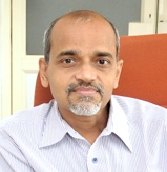International Conference and Expo on Medical Sonography
Toronto, Canada

C Ganesh Pai
Department of Gastroenterology & Hepatology, Kasturba Medical College, Manipal University, Manipal 576104. Karnataka, India
Title: Endosonographic evidence of chronic pancreatitis according to Rosemont criteria in patients with unexplained recurrent acute pancreatitis
Biography
Biography: C Ganesh Pai
Abstract
Recurrent acute pancreatitis (RAP) is known to lead to CP. We aimed to assess the frequency of chronic pancreatitis in patients with unexplained RAP. Patients with RAP in whom no cause was evident on clinical and laboratory evaluation and on cross sectional imaging were prospectively evaluated by endocopic ultrasound (EUS) for changes of chronic pancreatitis (CP) using Rosemont criteria. Findings of endoscopic retrograde cholangiopancreatography (ERCP) as per Cambridge criteria were also considered in the subgroup in which this procedure was indicated for therapy. Forty-eight patients (male: female = 37:11, median age = 21, range 10 -70 years) with RAP seen over a 34-month period were included prospectively. All underwent EUS and 19 (39.6%) underwent ERCP additionally. EUS finding were most consistent for CP and suggestive of CP in 7 (14.6%) and 11 (22.9%) patients respectively. Two (4.2%) others developed findings most consistent with CP on repeat EUS during the study period. An additional 5 (10.4%) had mild or moderate changes of CP on ERCP. Thus, 25 (52.1%) patients showed findings most consistent with or suggestive of CP on EUS, or of mild to moderate changes of CP on ERCP during the study period. Our data show that more half of the patients without evidence of CP on other investigations show evidence of chronic disease on EUS or ERCP. This opens up the possibility of focusing on earlier stages of this condition to see if early interventions will alter the outcomes in these patients.
